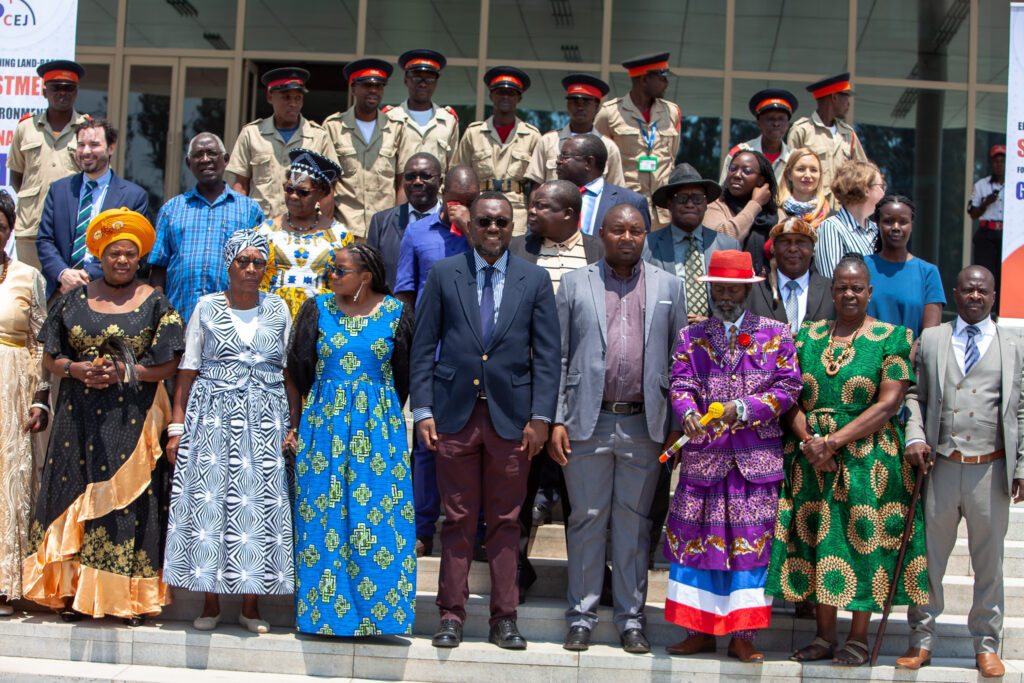SOCIAL ACCOUNTABILITY ON EXTRACTIVE INDUSTRIES CORPORATE SOCIAL RESPONSIBILITY & CONTRACT TRANSPARENCY

Evidence Based Research
The project has been implemented in two district(s), starting with Kafue District focusing on Universal Mining- Kafue Steel Plant and Chilanga District focusing on Lafarge Cement formerly Chilanga Cement respectively. The project was designed to fulfil the urgent need for dialogue and creating a soft platform for engagement between the community, government and industries. It was also aimed at strengthening the capacities of the surrounding communities namely; (For chilanga: Linda & Mount Makulu, Chilanga – For Kafue:Kafue Estates, Shikoswe & Zambia Compound) Central in environment management sector with special emphasis on corporate social responsibility, and contract transparency; and the role of extractive industries in sustainable community development. The information generated by the project is useful for environmental management that creates a platform for continued informed dialogue and advocacy. This was supported by the Civil Society Environment Fund(CSEF1).
Corporate Social Responsibility (CSR) is defined as ‘corporate initiative to assess and take responsibility for a company’s effects on the environment and impact on social welfare’ (Investopedia US, 2013). Consequently, as evident in several parts of the world, CSR has promoted activities in areas such as education, health, the environment, culture and the arts (C M Fundanga, 2006). Benefits of CSR are not solely for the public, industries engaging in CSR also benefit. Firstly, investment in CSR can have a direct impact on the productivity of the community, contributing to the overall health of a company’s employees. This enhances social and human capital and therefore profitability of the industries and local community. Secondly, the responsiveness of an industry to the concerns of a community can contribute positively to its reputation and the acceptability of its products and services. In addition, this responsiveness can help to manage conflicts between the community and the company. Thirdly, CSR can foster harmonious relationships between various stakeholders in a particular community (C M Fundanga, 2006).
Despite the benefits to industries, public and government, CSR is not widely employed in Zambia. Zambia, like several other countries in Southern Africa, is heavily dependent on extractive industries for economic development. The availability of resources and attractive investment policies, including favorable work environment, intended to attract investors from all over the world, has resulted in the strategic establishment of such industries. However, with the massive existence of such extractive industries, local communities are experiencing adverse effects to their environment, health and safety, which have created imbalances between benefits and costs. For example, Post Newspaper reported, ‘CSR is not to be viewed as a favor from the mining companies’ (Oct 22, 2012). More recently, much attention has been raised regarding the lack of CSR by extractive industries, especially in the mining industry in Zambia. As a result, selected research has been done regarding CSR in the mining sector. A research done by the Bench Marks Foundation covering Southern African countries including Zambia, identified gaps of CSR in the Zambian mining industry. The research study showed legislation regarding CSR is ineffective due to the inability to implement and monitor the regulations. This is further exacerbated by low levels of accountability, transparency and commitment (Cronje et. al, 2008). Analysis of the study findings revealed CSR in mining communities is relatively ineffective in terms of facilitating sustainable development. These communities continue to experience consequences of the gaps between policy and practice, policy and human rights and practice and human rights (Cronje et. al, 2008). The research showed vast differences between expectations, perceptions and needs of stakeholders involved. It highlighted the need for alignment by embarking on community engagement aimed at mutual understanding (Cronje et. al, 2008). This emphasizes the important role community involvement should play.
Currently, there is no clear legal framework governing CSR in Zambia, neither is there a consensus on the meaning or how it can be effectively used in the development process (N Noyoo, 2007).
As part of CSR, transparency about pollution emissions, contract and annual returns is crucial in promoting accountability and management of natural resources (EITI Zambia, 2013). As illustrated, there are still gaps in these areas which have resulted in ineffective environmental management. The ‘Social accountability of extractive industries, corporate social accountability, Annual turnover, contract and pollutant transparency’ project focuses on two industries; UMCIL-Kafue Steel Plant and Lafarge Zambia Plc. This project will build on existing literature and provide recommendations to address environmental effects in Kafue with emphasis on corporate social accountability, contract transparency, annual returns transparency and pollutants transparency.
